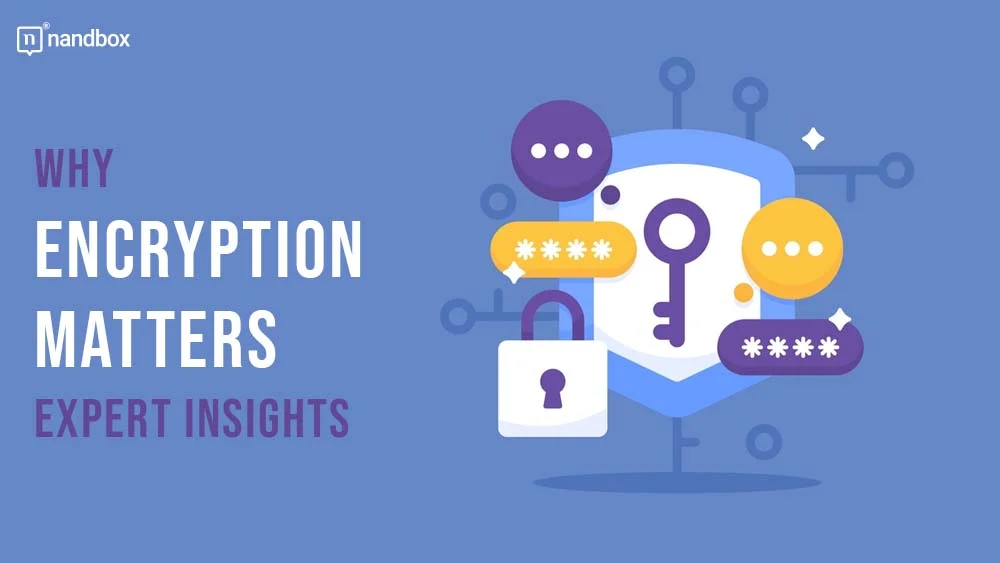Data invasion is a common issue these days, so having data security and digital asset measures is no longer optional but a necessity. You can look into many strategies to reinforce encryption, such as adopting cybersecurity network segregation or cloud security as part of your data solution. Encryption helps ensure that hackers can’t read your data. It uses programs to change the data into an unreadable format without the security key, which allows for safe communication and data transfer without the risk of falling into the wrong hands. Because of this role, making encryption part of your data security plan is a must and Securing Your Digital Assets.
Basics of Encryption
Encryption translates ordinary text into cipher text and hence doesn’t allow any third party to gain access.
Only the proper decryption key can convert ciphertext back to its original form. This process ensures that, even if someone intercepts the data during transmission or the storage environment is insecure, unauthorized persons cannot access the data.
SSL/TLS certificates protect data during transfer. They secure communication between a user’s browser and a web server, ensuring data remains safe. This process protects your identity, including passwords and other payment or private data. But it doesn’t stop there; when using an SSL certificate, you still have to follow proper SSL certificate practices like configuration, testing, and renewal to ensure its integrity and enhance security. Alternatively, you can get an SSL certificate management expert to handle it and ensure everything is correctly done.
Some of the most common types of encryption are symmetric encryption, which uses the same key for encrypting and decrypting data. On the other hand, asymmetric encryption uses two keys: a public key and a private key. All these are ideal for emails, files, databases, and even a whole network.
Why Encryption Is Essential for Digital Security
1. Protection Against Data Breaches

Data leakage is a cyber threat that occurs almost daily, with over 8 million cases reported in the fourth quarter of 2023 alone. To protect yourself from this, you need to use encryption, which is highly effective. Even if hackers gain access to your data, they won’t be able to use it without the decryption key because the program it uses scrambles data, making it unreadable. So, encryption is the way to go when it comes to protecting sensitive information like financial reports, PINs, and other proprietary data.
2. Ensure Compliance
These days, every sector that handles data must operate under strict legal requirements for data protection to ensure clients’ information is protected. Regulations like Europe’s GDPR and the United States HIPAA exist to enforce this by requiring organizations to add security layers like encryption to safeguard data and securing your digital assets.
Failing to comply with these standards can lead to severe penalties and legal action. That means using encryption isn’t just a security measure but a legal requirement to operate as a business legally.
3. Maintain Trust and Reputation
Trust is one of the key aspects of any business relationship, and thus, its maintenance implies constant work security. Customers and clients also require assurance that their information is safe, especially when dealing with sensitive data.
Encrypting customers’ data ensures its safety while showing them that security is essential to you. On the other hand, lack of proper encryption may result in loss of credibility and major damage to the business image. In other cases, business owners aren’t spared from severe financial losses due to direct and indirect effects.
4. Preserve Data Integrity
Encryption is not just about keeping data from prying eyes; it also ensures its authenticity. This layer of protection is particularly essential for healthcare and legal companies where reputation is key. Furthermore, keeping the data accurate and unaltered (trustworthy) improves confidence in the data, enabling correct decisions, and securing your digital assets.
Best Practices To Encrypt Digital Assets
- Keep your encryption key safe: Avoid common mistakes like placing your encryption key on an unencrypted file on your PC where it can be easily found. Always keep the encryption keys safely separate from general data, and change your keys often.
- Ensure all important data is encrypted: You need to encrypt all the data regardless of the probability that someone will get access to it. This makes it much harder for anyone with ill intentions to compromise your data.
- Regularly evaluate performance: Data encryption performance should be evaluated often to fix potential issues and enhance data protection.
- Use the latest software: Update encryption keys regularly because they can easily be compromised if they are obvious. Try to adopt a key management system to ensure that the old encryption keys are effectively removed.
- Properly train your employees: Training employees on encryption measures helps them appreciate encryption, recognize risks, and take precautions to secure data.
Conclusion
Getting it right in data protection requires combining various security measures. Among these is encryption, which acts as a strong barrier that helps prevent data breaches. If the attacker infiltrates the organization, they won’t be able to use the data since it’s encrypted and requires a decryption key. Furthermore, encryption ensures compliance with the law and boosts customer trust and data quality. That is why encryption sensitive data and periodically assessing its effectiveness are critical.



